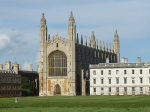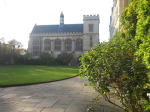UK News
-
 UK government boosts support for UK islands with extra £4.6 million
In anticipation of the fourth UK Islands Forum, convened on the Isle of Anglesey in Wales today, the UK Government has unveiled additional funding to bolster island communities across theRead More...
UK government boosts support for UK islands with extra £4.6 million
In anticipation of the fourth UK Islands Forum, convened on the Isle of Anglesey in Wales today, the UK Government has unveiled additional funding to bolster island communities across theRead More... -
 UK responds firmly: expels Russian spy amidst escalating threat
Read More...
UK responds firmly: expels Russian spy amidst escalating threat
Read More...
The UK government has announced a significant set of measures aimed at targeting and dismantling Russian intelligence operations within the country, according to the Home Secretary. -
 The Thames Barrier: safeguarding London for four decades
On Wednesday, May 8, 2024, the Thames Barrier celebrates its 40th anniversary since its inauguration by the late Queen in 1984. Erected as one of the largest movable barriers globally,Read More...
The Thames Barrier: safeguarding London for four decades
On Wednesday, May 8, 2024, the Thames Barrier celebrates its 40th anniversary since its inauguration by the late Queen in 1984. Erected as one of the largest movable barriers globally,Read More... -
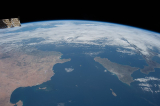 Space sustainability conference commences with £1.8 million innovation boost
The UK Space Agency announces a £1.8 million funding injection to propel advancements in space technology, aimed at enhancing satellite capabilities for monitoring changing shorelines,Read More...
Space sustainability conference commences with £1.8 million innovation boost
The UK Space Agency announces a £1.8 million funding injection to propel advancements in space technology, aimed at enhancing satellite capabilities for monitoring changing shorelines,Read More... -
 UK leads Europe in investment for next-generation nuclear fuel and fusion energy
The UK government has announced significant investments in nuclear fuel and fusion energy technologies, solidifying its commitment to future energy security and independence.Read More...
UK leads Europe in investment for next-generation nuclear fuel and fusion energy
The UK government has announced significant investments in nuclear fuel and fusion energy technologies, solidifying its commitment to future energy security and independence.Read More...

Culture
-
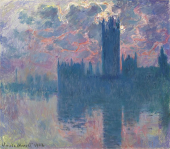 Fake Monet and Renoir paintings detected on eBay using AI
Up to 40 counterfeit paintings, including alleged works by Monet and Renoir, have been identified for sale on eBay, according to research conducted by Dr. Carina Popovici, an expertRead More...
Fake Monet and Renoir paintings detected on eBay using AI
Up to 40 counterfeit paintings, including alleged works by Monet and Renoir, have been identified for sale on eBay, according to research conducted by Dr. Carina Popovici, an expertRead More... -
 Pippa Middleton and James Matthews unveil lodge at Bucklebury Farm
Pippa Middleton and her billionaire husband James Matthews have inaugurated the lodge at Bucklebury Farm Park in Berkshire, offering a venue for parties, events, and Pilates sessions.Read More...
Pippa Middleton and James Matthews unveil lodge at Bucklebury Farm
Pippa Middleton and her billionaire husband James Matthews have inaugurated the lodge at Bucklebury Farm Park in Berkshire, offering a venue for parties, events, and Pilates sessions.Read More... -
 Five British museums nominated for prestigious arts prize
Museums across Skipton, Dundee, Manchester, and London are vying for the esteemed title of Museum of the Year 2024.Read More...
Five British museums nominated for prestigious arts prize
Museums across Skipton, Dundee, Manchester, and London are vying for the esteemed title of Museum of the Year 2024.Read More... -
 Gustav Klimt portrait sells for £25.7 million at Vienna auction
A long-lost portrait by Gustav Klimt, depicting a young woman, fetched a staggering 30 million euros (£25.7 million) at an auction held in Vienna on Wednesday.Read More...
Gustav Klimt portrait sells for £25.7 million at Vienna auction
A long-lost portrait by Gustav Klimt, depicting a young woman, fetched a staggering 30 million euros (£25.7 million) at an auction held in Vienna on Wednesday.Read More... -
 Rishi Sunak: remembering those lost in terror attack
In his Passover message to the Jewish community, Prime Minister Rishi Sunak acknowledges the somber reality that "for too many families, there will be empty seats" at the Seder table thisRead More...
Rishi Sunak: remembering those lost in terror attack
In his Passover message to the Jewish community, Prime Minister Rishi Sunak acknowledges the somber reality that "for too many families, there will be empty seats" at the Seder table thisRead More... -
 Co-op Live: Manchester's new arena opens with high capacity and ambitions
A monumental addition to Manchester's entertainment landscape, the new £365m Co-op Live arena is poised to claim the title of the largest indoor arena in the UK. Nestled beside ManchesterRead More...
Co-op Live: Manchester's new arena opens with high capacity and ambitions
A monumental addition to Manchester's entertainment landscape, the new £365m Co-op Live arena is poised to claim the title of the largest indoor arena in the UK. Nestled beside ManchesterRead More... -
 Brontë birthplace unveils open day prior to renovation
The birthplace of the renowned Brontë sisters is set to welcome visitors for a special glimpse inside before embarking on a significant refurbishment.Read More...
Brontë birthplace unveils open day prior to renovation
The birthplace of the renowned Brontë sisters is set to welcome visitors for a special glimpse inside before embarking on a significant refurbishment.Read More... -
 Taylor Swift's 'The Tortured Poets Department' smashes Spotify record
Taylor Swift's latest album, "The Tortured Poets Department," has shattered Spotify's record for the most-streamed album in a single day, the platform has announced. Not only did Swift'sRead More...
Taylor Swift's 'The Tortured Poets Department' smashes Spotify record
Taylor Swift's latest album, "The Tortured Poets Department," has shattered Spotify's record for the most-streamed album in a single day, the platform has announced. Not only did Swift'sRead More... -
 Historic London pub, linked to Royalty, ravaged by fire: a heartbreaking loss
A renowned London pub, steeped in history dating back possibly to the 16th century, has suffered extensive damage in a devastating fire. The Burn Bullock, a grade II-listed establishmentRead More...
Historic London pub, linked to Royalty, ravaged by fire: a heartbreaking loss
A renowned London pub, steeped in history dating back possibly to the 16th century, has suffered extensive damage in a devastating fire. The Burn Bullock, a grade II-listed establishmentRead More... -
 Salvator Rosa painting stolen from Oxford, recovered in Romania, and returned to UK
A painting valued at EUR 2 million, stolen from an art gallery at Oxford University approximately four years ago, has been recovered in Romania and returned to UK judicial authorities,Read More...
Salvator Rosa painting stolen from Oxford, recovered in Romania, and returned to UK
A painting valued at EUR 2 million, stolen from an art gallery at Oxford University approximately four years ago, has been recovered in Romania and returned to UK judicial authorities,Read More... -
 Plans to demolish former Museum of London site put on pause
A last-minute intervention from Levelling Up Secretary Michael Gove has halted plans to demolish the former Museum of London site.Read More...
Plans to demolish former Museum of London site put on pause
A last-minute intervention from Levelling Up Secretary Michael Gove has halted plans to demolish the former Museum of London site.Read More... -
 June’s London Fashion Week returns with fresh concept
The British Fashion Council has unveiled an innovative approach for the upcoming London Fashion Week in June, aiming to spark a cultural phenomenon. Set to take place fromRead More...
June’s London Fashion Week returns with fresh concept
The British Fashion Council has unveiled an innovative approach for the upcoming London Fashion Week in June, aiming to spark a cultural phenomenon. Set to take place fromRead More... -
 London's inaugural Taiwanese culture festival explores island's identity and history
London's vibrant Notting Hill district is about to experience a taste of Taiwanese culture with the launch of the 16-day Taiwan Festival on Friday, April 12.Read More...
London's inaugural Taiwanese culture festival explores island's identity and history
London's vibrant Notting Hill district is about to experience a taste of Taiwanese culture with the launch of the 16-day Taiwan Festival on Friday, April 12.Read More...

British Queen celebrates
Most Read
- Teen held after US woman killed in London stabbings
- Heave-ho Harry! Prince prepares to join the walking wounded in ice trek to North Pole
- Football: Farhad Moshiri adamant Everton deal above board
- "Master of English Style". Interview with Designer Lydia Dart
- Letter to the Financial Times from Lord Mayor Alderman Michael Bear
World News
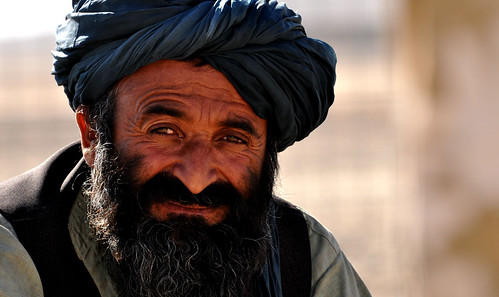
The Taliban has threatened revenge unless India returns the body of a Pakistani man executed for his role in the 2008 Mumbai attacks that killed 166 people.
Mohammed Ajmal Kasab's body must be given back to his family or handed over to the Taliban, it said.
"If his body is not given to us or his family, we will, God willing, carry on his mission," Pakistani Taliban spokesman Ahsanullah Ahsan Ahsan told The Associated Press news agency by telephone. "We will take revenge for his murder."
India secretly hanged Mohammed Ajmal Kasab on Wednesday and buried his body at the jail in the city of Pune where he was executed.
Indian External Affairs Minister Salman Khurshid has said the government would consider any request from the Pakistani government or Kasab's family to hand over his body, but no such request had been received.
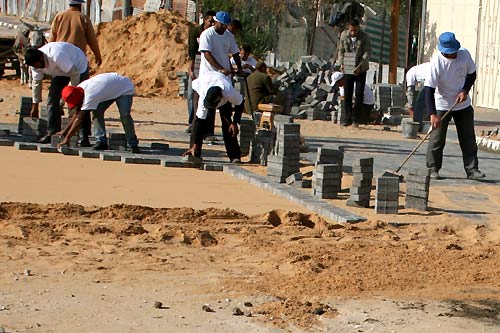
Israel and the Hamas militant group are edging closer to a ceasefire to end the week-long Israeli offensive in the Gaza Strip, but a deal remains elusive after a day of furious diplomatic efforts.
Israeli tanks and gunboats pummelled targets in Gaza in what appeared to be a last-minute burst of fire on Tuesday, while at least 200 rockets were fired into Israel.
As talks dragged on near midnight, Israeli and Hamas officials, communicating through Egyptian mediators, expressed hope that a deal would soon be reached, but warned that it was far from certain.
"If there is a possibility of achieving a long-term solution to this problem by diplomatic means, we prefer that. But if not, then I am sure you will understand that Israel will have to take whatever actions are necessary to defend its people," Israeli prime minister Benjamin Netanyahu said at a late-night meeting with visiting US secretary of state Hillary Clinton.
Mrs Clinton was hastily dispatched to the region by President Barack Obama to join a group of world leaders working to halt the violence. "In the days ahead, the United States will work with our partners here in Israel and across the region toward an outcome that bolsters security for the people of Israel, improves conditions for the people of Gaza and moves toward a comprehensive peace for all people of the region," she said.
She expressed sorrow for the heavy loss of life on both sides, but called for Palestinian rocket attacks on Israel to end and stressed that the American commitment to Israel's security was "rock solid". "The goal must be a durable outcome that promotes regional stability and advances the security and legitimate aspirations of Israelis and Palestinians alike," she said.
US State Department spokeswoman Victoria Nuland said Mrs Clinton met Mr Netanyahu and other Israeli officials for two hours. "They discussed efforts to de-escalate the situation and bring about a sustainable outcome that protects Israel's security and improves the lives of civilians in Gaza," Ms Nuland said. "They also consulted on her impending stops in Ramallah and Cairo, including Egyptian efforts to advance de-escalation."
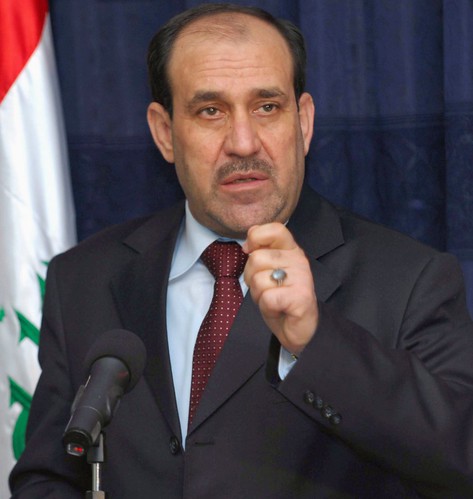
Baghdad cancelled a $4.2 billion (3.3 billion euro) weapons package with Russia on Saturday citing graft concerns, torpedoing a deal that would have made Moscow Iraq's biggest arms supplier after the US.
Cancellation of the deal, which had been announced when Prime Minister Nuri al-Maliki led a delegation to Russia last month, is a setback for Moscow's attempts to firm up its slipping foothold in the Middle East and also throws into doubt efforts by Iraq to equip its armed forces.
"The deal was cancelled," Maliki's spokesman Ali Mussawi said.
"When Maliki returned from his trip to Russia, he had some suspicions of corruption, so he decided to review the whole deal... There is an investigation going on, on this."
Mussawi declined to say who specifically was being investigated, or if Iraq would begin new negotiations with Moscow.
He also did not say exactly when the final decision was made to stop the deal.
The Russian embassy in Baghdad was not available for comment.
Had the deal been finalised and implemented, it would have made Russia Baghdad's second-biggest arms supplier, after the United States.

America has moved from the bitter election campaign that gave President Barack Obama a second White House term towards a test of whether Republicans and Democrats are now ready to set aside their deep partisan divisions and legislative gridlock.
Meanwhile US stocks suffered their worst one-day loss of the year as investors looked past the election and focused on big problems ahead in Washington and Europe.
The Dow Jones industrial average plunged 313 points to end at 12,933, its worst day of 2012, the Standard & Poor's 500 index fell 34 points to 1,395 and the Nasdaq composite index gave up 75 points to 2,937.
The challenge is to overcome the self-imposed "fiscal cliff", dramatic and automatic tax increases and spending cuts that could drag the nation back into recession.
But in day-after-election remarks Republicans signalled no readiness to give up on their ideological opposition to raising taxes on high-income Americans, but instead were continuing to push for lower rates across the board.
That Reagan era theory, known as trickle-down economics, holds that cutting taxes will vastly increase the size of the income and profit pie, thereby producing more revenue even at lower tax rates.
Speaker of the Republican-controlled House of Representatives, John Boehner, laid down that position yet again as the condition for working for any increase in government revenue in return for Mr Obama's stated - but undefined - willingness to cut spending on crucial social programmes.

David Cameron has sent his congratulations to Barack Obama, saying: "I think he's a very successful US president and I look forward to working with him in the future."
Speaking during a tour of the Middle East, the Prime Minister said: "I would like to congratulate Barack Obama on his re-election.
"I have really enjoyed working with him over the last few years and I look forward to working with him again over the next four years.
"There are so many things that we need to do: we need to kick start the world economy and I want to see an EU-US trade deal.

Troops rescued more people from storm-flooded homes on Thursday and millions remained without power along the US East Coast even as New York struggled back to life with the first subway trains rolling in four days.
The US death toll from Hurricane Sandy rose to at least 85 as New York reported a major jump in fatalities caused by Monday's storm. Fuel shortages led to long lines of cars at gasoline stations in many states and the country faced a storm bill of tens of billions of dollars.
Despite a huge cleanup operation after the devastating storm, major difficulties remained along the East Coast, particularly in New Jersey.
National Guard troops were still helping to get people out of flooded homes in Hoboken, across the Hudson River from New York, a Guard spokesman said. "We are still doing search and rescue operations across the state," the spokesman said.
Hoboken authorities estimated on Wednesday that 20,000 people were stuck in their homes and high-wheel military trucks were brought in to reach stricken houses and apartment blocks.
The floodwaters receded slowly, leaving desolation on Thursday. A yacht, thrown up by the storm, blocked one street near the Hoboken ferry terminal.
New Jersey, where President Barack Obama went Wednesday, emerged as the state with the most widespread destruction. At least 12 people were reported dead in the state, and many isolated districts were still being searched.
Some 1.8 million people in New Jersey were still without electricity three days after the storm and fuel shortages were becoming critical, with huge queues of cars at the rare gas stations open in the state.
The first subway trains brought some cheer to New York City, but difficulties remained significant with Con Edison power company saying that about 650,000 thousand people in the city were still without power.
Con Edison spokesman Alfonso Quiroz promised that more than 200,000 Manhattan customers blacked out by an explosion at a sub-station would have power by Saturday morning.
New York authorities handed out ice across the city to help people preserve food.
A skeleton metro service started just before dawn and trains were quickly packed. Train fees were waived on Thursday and Friday. "It is not comfortable but it is a huge relief to get moving again," said commuter Dave Stetman.
In a bid to avoid gridlock traffic jams that hit Manhattan on Wednesday, Mayor Michael Bloomberg said cars entering the island must have at least three occupants. Police set up checkpoints at bridges on Thursday and turned back hundreds of cars.
Police said the New York City death toll from Sandy in the city had risen from 24 to 37. At least 85 people have now been reported dead along the 15 eastern states hit by Sandy.
The overall toll from the storm thus went up to 157, including fatalities in Canada and the Caribbean, where Haiti and Cuba were hit particularly hard.
In New York the majority of those killed were hit by trees that fell on their homes or cars as the storm whipped into the city.
But some heartbreaking stories emerged from the storm.
Two brothers, aged two and four, were swept from their mother's arms in the floods as the family tried to escape the rising seas in Staten Island in the New York suburbs.

Hurricane Sandy has forced Barack Obama and Mitt Romney to cancel up to two days of campaigning in the last full week of one of the closest presidential contests in recent US history.
While putting a severe limit on campaigning, the storm gave Mr Obama the opportunity to demonstrate leadership in the face of crisis. On the other side, there was the risk that the federal government, as in past emergencies, could be faulted for an ineffective response.
He cancelled campaign events in the key battleground state of Florida to hurry back to Washington and oversee the federal response to Sandy.
Parts of four swing states were in the hurricane's path: Virginia, North Carolina, Ohio and New Hampshire. Those and five others - Florida, Iowa, Wisconsin, Nevada and Colorado - that do not reliably vote Democrat or Republican will decide the close election.
The storm threatened to draw attention from both candidates' campaigns and hinder early voting before the November 6 election. Voters in many states are already casting ballots early, and about one-third of the electorate will have voted before Election Day.
Both campaigns used social media to urge supporters to donate to the Red Cross and said they would stop sending fundraising emails to people living in areas in the storm's path.
The storm took attention from Mr Romney, and power cuts could end up halting the deluge of television ads and automatic phone calls in the eastern battleground states.

Hurricane Sandy is heading north from the Caribbean - where it left nearly 60 people dead - to threaten the eastern US with sheets of rain, high winds and heavy snow as millions were warned to get out of its path.
Sandy is expected to affect up to 60 million people when it meets two other powerful winter storms. Experts said it will not matter how strong the storm is when it hits land - the rare hybrid that follows will cause havoc over 800 miles from the East Coast to the Great Lakes.
"This is not a coastal threat alone," said Craig Fugate, director of the Federal Emergency Management Agency. "This is a very large area."
New Jersey governor Chris Christie declared a state of emergency as hundreds of coastal residents started moving inland and the state moved to close its casinos. New York's governor is considering shutting down the subways to avoid flooding and half a dozen states warned residents to prepare for several days of lost power.
Sandy weakened briefly to a tropical storm early on Saturday but was soon back up to Category 1 hurricane strength, packing 75mph winds about 335 miles south east of Charleston, South Carolina.

Hurricane Sandy has hit Cuba after lashing shanty towns, stranding travellers and downing power lines across Jamaica.
Sandy made landfall just west of Santiago de Cuba in southern Cuba, and the US National Hurricane Centre in Miami said it had maximum sustained winds of 114mph. The storm, which packed heavy wind and rain as it roared across Jamaica, could go on to threaten the Bahamas and possibly Florida.
Sandy's death toll so far is at least two. An elderly man was killed in Jamaica when he was crushed by a boulder that rolled on to his clapboard house, and a woman in Haiti was swept away by a rushing river.
The storm hit Jamaica as a Category 1 hurricane, with maximum sustained winds of 90mph, then strengthened as it spun over open sea towards Cuba. In some southern towns on Jamaica, a few crocodiles were caught in rushing floodwaters that carried them out of their homes in mangrove thickets, showing up in districts where electricity was knocked out.
The hurricane's eye crossed over Jamaica and emerged from its northern coast near the town of Port Antonio, meteorologists said, but rain and wind continued to pound the Caribbean island.
It was the first direct hit by the eye of a hurricane on Jamaica since Gilbert 24 years ago, and fearful authorities closed the island's international airports and police ordered 48-hour curfews in major towns to keep people off the streets and deter looting. Cruise ships changed their itineraries to avoid the storm, which made landfall five miles east of the capital Kingston.
Flash floods and mudslides were a threat for the debt-ridden tropical island of about 2.7 million inhabitants, which has a crumbling infrastructure and a number of sprawling shanty towns built on steep embankments and along gullies that sluice run-off water to the sea.

US President Barack Obama and his Republican rival, Mitt Romney, on Saturday began preparing for their final debate, with Obama hunkering down at Camp David and Romney staying in Florida.
The third and last of their debates is scheduled for Monday at Lynn University in Boca Raton, Florida.
On Friday, Obama set an aggressive tone accusing Romney of suffering from policy "Romnesia," a barb dismissed by the Republican as pettiness 18 days before the election.
One night earlier, both men had traded light-hearted banter at a charity dinner, but on Friday the verbal attacks turned nasty, with the Democratic incumbent taunting Romney's efforts to tack to the center as polling day looms.
"Mr. Severely Conservative wants you to think he was severely kidding about everything he said over the last year," Obama said at a rally attended by some 9,000 people at a university campus outside Washington.
The Obama camp's previous bid to skewer Romney with insulting tags -- such as pushing the Robin-Hood-in-reverse term "Romney Hood" to tarnish his tax policies -- have done nothing to protect the president's shrinking poll lead.
But, with the pair's last of three head-to-head debates set for Monday, the campaign returned to its tried and tested formula of branding Romney an untrustworthy flip-flopper.
"I mean, he's changing up so much and backtracking and sidestepping, we've got to name this condition that he's going through. I think it's called 'Romnesia.' That's what it's called," Obama told the crowd.
The Republican nominee meanwhile campaigned in the biggest political battleground of all, Florida, where Monday's debate will be held, and he didn't hesitate to strike back at the president's comments.
"They've been reduced to petty attacks and silly word games," Romney told a crowd of more than 8,500 people at Daytona Beach, adding that Obama's re-election bid "has become the incredible shrinking campaign."
"This is a big country, with big opportunities and great challenges, and they keep on talking about smaller and smaller things."
Romney, accompanied by his running mate Paul Ryan, laid into the incumbent for failing to map out his plan for another four years should he win re-election.
"They have no agenda for the future, no agenda for America, no agenda for a second term."
While Romney's camp dismissed Obama's taunt as a gimmick, the image of Romney as a flip-flopper, one that his fellow conservatives have hit him with in the past, might yet gain traction with undecided voters.
One source that definitely does not back the multimillionaire private equity baron is The Salt Lake Tribune, the local paper in the home city of Romney's Mormon faith, albeit a liberal one that endorsed Obama in 2008.
In an editorial, the paper lavished praise on Romney for saving the city's 2002 Winter Olympics, but said his subsequent courting of the right-wing Tea Party movement and refusal to detail his tax plan should rule him out.










